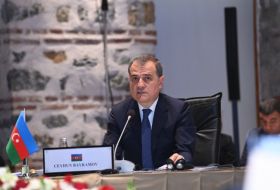Respect for ceasefire important for talks on Karabakh conflict - OSCE MG

“The main purpose of the co-chairs’ visits to the region was to receive the most current detailed political and military information on the line of contact and the Armenia-Azerbaijan border, to discuss the implementation of agreements reached at 2016 summits in Vienna and St. Petersburg and to address the next steps toward a settlement,” says the OSCE Minsk Group statement.
The co-chairs met with the presidents and foreign ministers of Azerbaijan and Armenia.
“They also visited territories around Nagorno-Karabakh. In their talks, the co-chairs reiterated their deep concern over recent incidents along the line of contact, calling on the sides to exercise restraint in their rhetoric and in their actions. The presidents laid out their positions on the co-chairs’ proposals to strengthen the ceasefire and to avoid further escalation of hostilities, particularly in light of the Novruz and Easter holidays. They expressed their commitment to continuing the negotiation process toward a political solution,” says the statement.
“In their talks, the co-chairs stressed the essential importance of continued support for Ambassador Kasprzyk’s mission and its expansion. The co-chairs also emphasized their conviction that respect for the ceasefire is of the utmost importance for building an atmosphere of trust to enable further negotiations,” the OSCE Minsk Group said.
The co-chairs will soon travel to Vienna to brief the members of the Minsk Group.
The conflict between the two South Caucasus countries began in 1988 when Armenia made territorial claims against Azerbaijan. As a result of the ensuing war, in 1992 Armenian Armed Forces occupied 20 percent of Azerbaijan, including the Nagorno-Karabakh region and seven surrounding districts.
The 1994 ceasefire agreement was followed by peace negotiations. Armenia has not yet implemented four UN Security Council resolutions on withdrawal of its Armed Forces from the Nagorno-Karabakh and the surrounding districts.












































